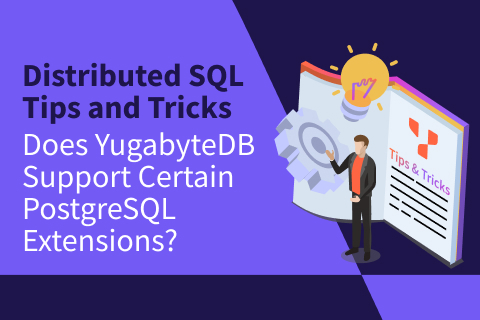Is There A Way To Enable Low Latency Reads For My Cluster Without Adding Servers Via Read Replicas?
There are multiple ways to geo-distribute your reads to regions local to your users with YugabyteDB. Read replicas are one of those methods; however, this requires the spinning up for additional infrastructure. Adding servers means paying more money and many companies do not have this flexibility. In such cases, users can enable follower reads to allow for low-latency reads from the primary cluster. As we call out in our follower read documentation:
YugabyteDB requires reading from the leader to read the latest data. However, for applications that do not require the latest data or are working with unchanging data, the cost of contacting a potentially remote leader to fetch the data may be wasteful. Your application may benefit from better latency by reading from a replica that is closer to the client.
Although read replicas are typically used by monolithic applications to accomplish something similar, they use asynchronous replication (in addition to the additional infrastructure). Follower reads execute on the primary cluster. Since data in this cluster replicates synchronously, you can read the right value as soon as the data is written to disk. However, please keep in mind that because data changes are still replicated from the leader, there is a chance of stale reads. Similar to the use of read replicas, this will not work for applications that require absolute correctness of data.
Additional information
- Follower read examples (YSQL)
- Follower reads use cases (YSQL)
- Considerations for follower reads (YCQL)
Discover More Tips and Tricks
Explore our library of distributed SQL tips and tricks and general “how to” information on the YugabyteDB blog and on our DEV Community Blogs.
Events and Training
Check out the upcoming YugabyteDB events, including all training sessions, conferences, in-person and virtual events, and YugabyteDB Friday Tech Talks (designed for engineers by engineers).
In addition, there is some extremely popular “how to” content on the YugabyteDB YouTube channel.
If You Have Questions About Distributed SQL
If you have questions, ask them on the YugabyteDB Slack channel, Forum, GitHub, or Stack Overflow.
Next Steps
Ready to start exploring YugabyteDB features? You have some great options to get started. Run the database locally on your laptop (Quick Start), deploy it to your favorite cloud provider (Multi-node Cluster Deployment), sign up for a free YugabyteDB Managed cluster, or request a full-featured trial. It’s easy! Get started today!


